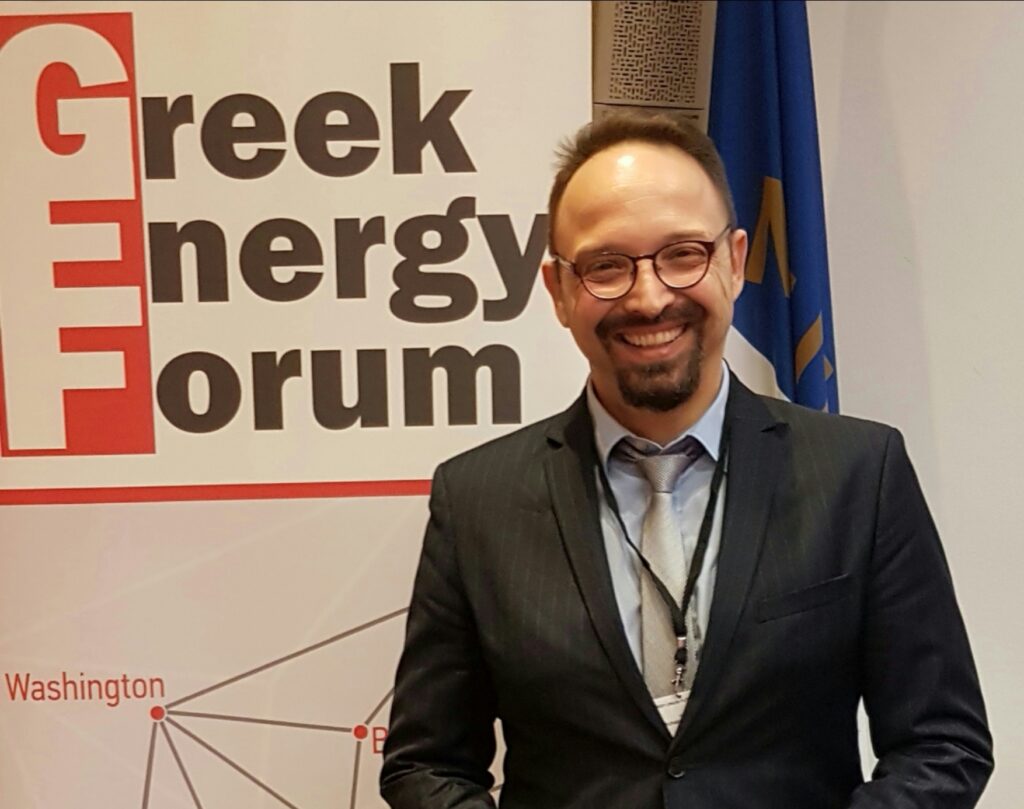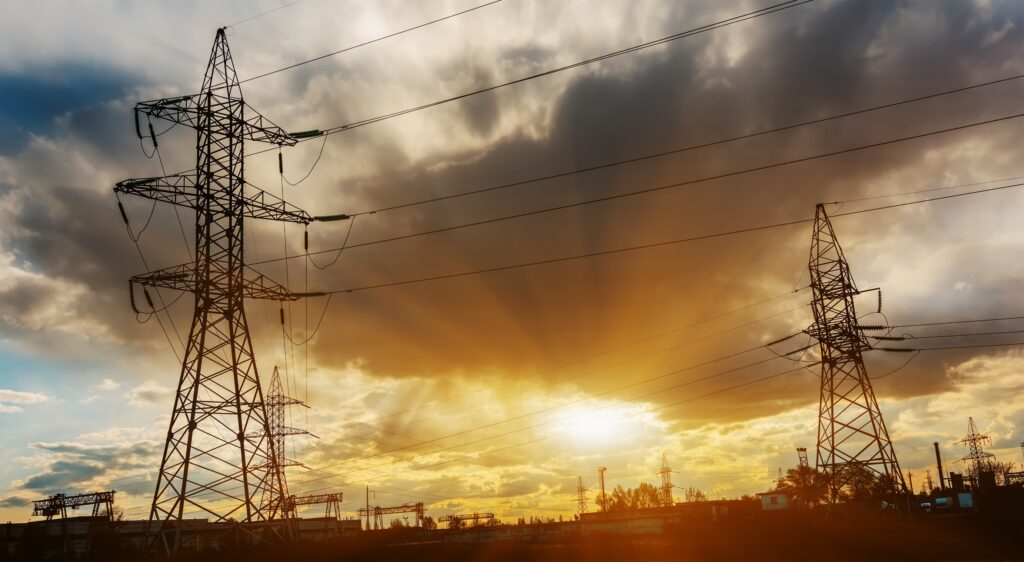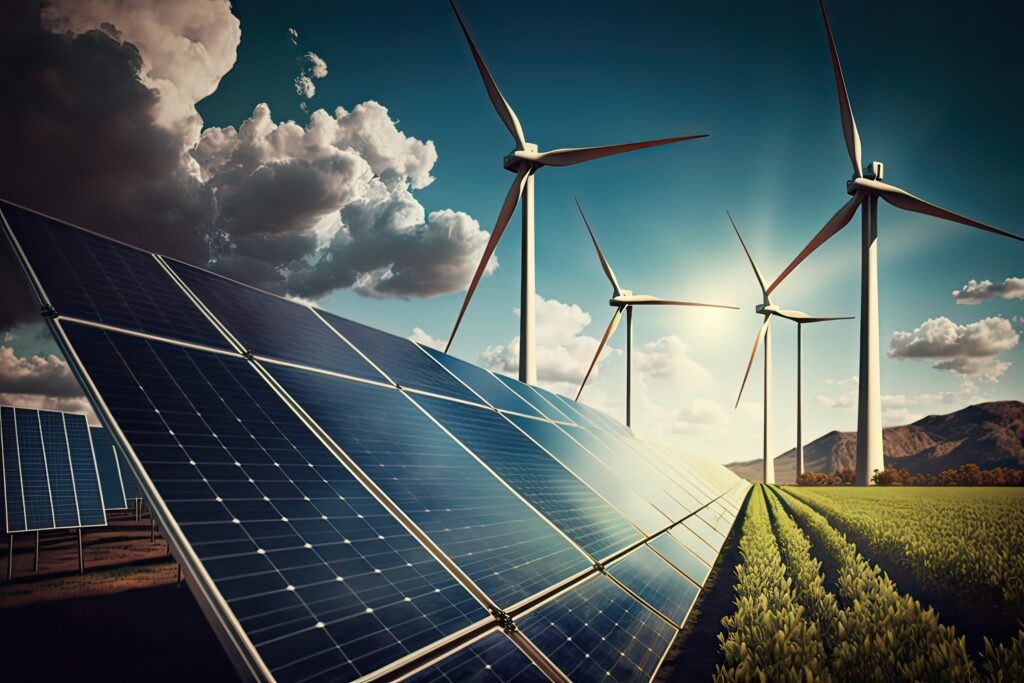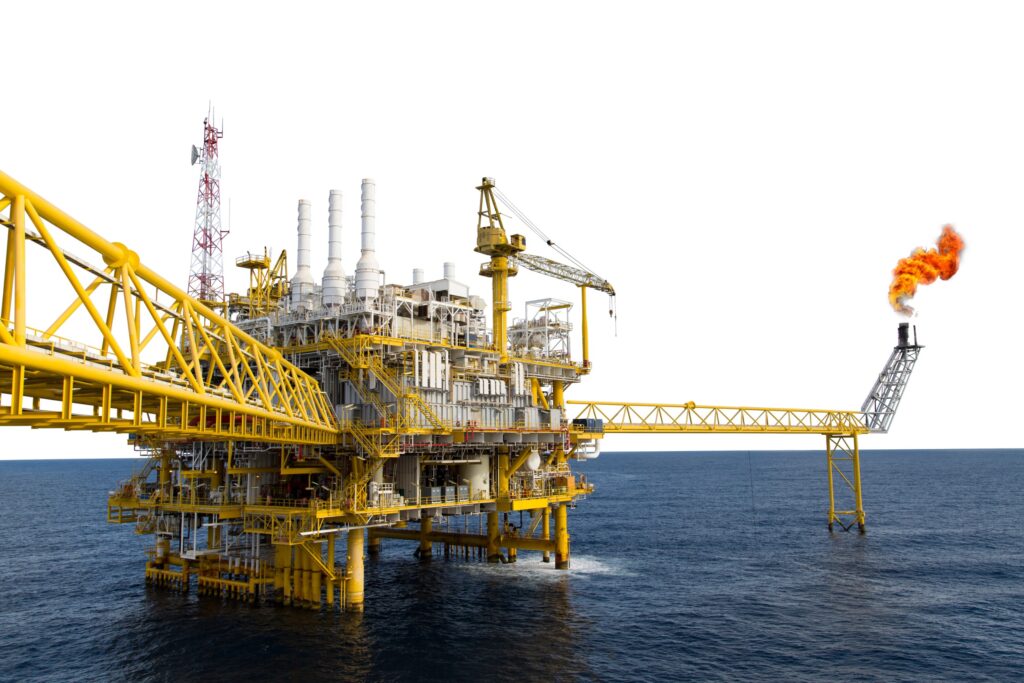Filenews 4 April 2024 - by Xania Turki
Three of Cyprus' energy priorities, as analyzed by Michalis Mathioulakis, Energy Strategy Analyst, Academic Director of the Hellenic Energy Forum and Director of Scientific Research of the Hellenic Institute of Energy Regulation
Interview by Xenia Turki
At a time full of uncertainties and energy challenges, Cyprus, if it wants to play a leading role, must proceed decisively with the exploitation of its natural gas. Michalis Mathioulakis, Energy Strategy Analyst, Academic Director of the Hellenic Energy Forum and Director of Scientific Research of the Hellenic Institute of Energy Regulation, talks to Insider about the prospects in the energy sector in Europe and Cyprus and explains that we still have a way to go before we can depend on Renewable Sources.

THE SLOWDOWN IN THE ECONOMY AND ENERGY PRICES
It is almost the second winter since Russia's invasion of Ukraine, with the turbulence caused in the energy sector. How much higher are oil prices, especially gas, today compared to the pre-crisis period?
Natural gas has returned to pre-crisis prices. Let me remind you that the crisis began in the summer of 2021, six months before the Russian invasion, when prices went from €23 to €25 per kilowatt hour a year later to €340 per kilowatt hour. Now, prices are back below 25 euros per kilowatt hour. Oil prices are slightly higher than they were before the crisis, hovering near $80 a barrel.
Will energy prices continue to decline in the coming period or is it that, as uncertainty is recorded, safe predictions cannot be made?
Any prediction is precarious, as no one knows what will happen next. Beyond that, my view is that there is a big trend that affects prices and that will continue in the coming years and that has to do with the global economy slowing down and with it the demand for energy, which keeps prices low. I believe that this trend will continue for the next three years.
This does not mean that there cannot be phases in which there is an increase, and now we are in such a phase. The rest of 2024 has uncertainties related to elections in the U.S. and the European Union. The prospect of a Donald Trump presidency, for example, leaves room for concern, in the sense that, if there is an issue of conflict between the U.S. and the EU, the Trump presidency has shown that it would not hesitate to use the energy dependence that Europe now has as a tool of pressure to achieve what it wants. And this is a tool that the previous Trump presidency did not have. It doesn't mean anything will happen, but the idea alone is enough to affect prices in the short term. I believe that the recent fall in prices will stop, without this necessarily meaning that there will necessarily be a big rise.

INTEREST RATES AND ENERGY PRICES
Have the risks of a global economic slowdown in 2024 or 2025 due to monetary policy tightening been overcome? Could the decisions expected from the European Central Bank in the second half of the year on interest rate cuts revive inflation and energy prices?
Globally, interest rates have been low, close to zero, for the past 15 years. This was a special situation and created an ocean of liquidity, which in my opinion fuelled inflation and therefore is core inflation.
I do not think this is reversible and certainly the solution is not to inject more liquidity into the market. Interest rates have gone up for two years now and we are only just beginning to see the consequences of the rise. I believe that the slowdown of the economy is ahead of us and not behind us. If the decision is taken to reduce interest rates, we may end up in a situation of renewed inflationary pressures, which may return even more severely than current levels. If we talk about more inflation, in the medium term we will have the corresponding pressure on energy prices.

SWITCH TO NET BILLING
In Cyprus, the installation of rooftop photovoltaics by households is being intensively promoted and these days there is a program of interest-free borrowing of households by the state, for installation, without initial capital and with bimonthly repayment instalments. Do you agree with the net metering system or should we switch to net billing, as is done in other EU countries?
The shift towards net billing is inevitable. Sooner or later all systems will turn to this way of measurement, which is more functional and helps to overcome more easily the various problems that arise. Beyond that, however, when a market is at its beginning, the right way is initially to have significant support from the state, in order to give impetus, create a market and make people aware of the advantages that exist.
Many consumers, both residential and commercial, exhibit an overconsumption behaviour when installing photovoltaics, because they believe that they now have cheap electricity and there is no reason to save. How can states curb this behaviour? Is it still necessary to save even in conditions of cheap energy from RES?
Saving energy remains the best way to improve our dependence on foreign energy, help the environment and meet the green targets set by the EU and national governments. The production from photovoltaics, let's not forget, takes place at specific times of the day and mainly at times when we do not need it so much, which means that we still have a long way to go and we cannot afford to waste energy. Besides, the largest consumption takes place in the morning, before dawn and in the evenings, which means that during these hours we do not use energy from photovoltaics.
As for states, they have two ways of convincing themselves of waste: on the one hand by persuasion and on the other by imposing fines and disincentives. And here I should mention that we are talking about saving energy, not having to do something and not doing it. Saving energy is not when I have to cook not to do it to save energy, but to be able to cook using less energy. This means changing the bulbs in my house so that they burn less electricity, having better insulation, so that I do not lose cooling in summer and heat in winter. Turning off the lights while leaving the house is not a saving, this is a non-waste. Saving is doing what I did before, with less energy.
OVERLY OPTIMISTIC TARGETS FROM EU
The European Union appears determined to implement the Green Deal, a far from easy task. Do you think this is feasible or do some of the targets and timetables need to be adjusted?
The Green Deal and the targets for 2050 and 2030 are too optimistic. That doesn't mean they're wrong, because that's obviously the direction we have to go into. What needs to be done is to be more realistic and strike a balance between the targets we want to achieve for offset shares and emission reductions and our energy security. What we are talking about is to ensure that the system works at no cost to consumers and without ending up running the risk of running out of energy.
Where improvements need to be made and the European Commission must realise that in order to have a greater share of renewables we must ensure that part of the electricity production must come from stable and flexible sources. At the moment, there are two such sources: natural gas and small nuclear plants. Without them we cannot function and we must be realistic. We need energy storage and at the moment we do not have such technologies that allow us to store so much renewable energy that we do not have to produce in the conventional way, at least 20% of our production. The levels we can store are far behind the levels we need daily.
THE SHIFT TO ELECTROMOBILITY
What about transport?
For the big part that is transport, I believe that the solutions offered are not sufficient and that we must realize that they are linked to problems that exist in the development of electromobility in relation to how European cities are built. Because, if I may say so, we are pushing people towards electromobility, but most European cities are not built so that everyone has an electric car and can easily charge it. They are not built in such a way and that is not going to change. This means that on the one hand we should not insist one-dimensionally on electromobility and on the other hand we should ensure that there are actions to enable people to slowly convert their cars to electric or hybrid, without the rest of the infrastructure stopping their operation.
How do you interpret the data showing that countries with high penetration of renewables in their energy mix still have expensive electricity, at final consumer prices? Denmark for example, Germany, Italy.
Wholesale electricity prices are the result of a number of factors, are never a one-dimensional process and do not depend on just one factor. Rising gas and oil prices play a role, but it's not the only driving force. The part of networks, that is, cables, plays a big role. This means that it is not enough just to have renewables, but also to ensure the flow to and from a country at all times. And this is not something easy to achieve. So even countries like Denmark, which have a lot of renewables, have issues about how they export their surplus energy and import when they need energy from elsewhere. Therefore, depending on the networks between countries, there are also differences in prices. It is not enough for a single country to have a large share of RES, because there are days and hours when RES do not cover daily needs and therefore other fuels are used, resulting in this cost entering the final price. Prices are also affected by the cost of trade in a country. It's not simple, I have RES and I solved the issue...
It was a question you recently asked in a Facebook post. How does a country become an energy hub? And because we hear a lot from Cypriot politicians, do you think that this goal is achievable for Cyprus?
In the study I have done on this topic I have identified five factors for a country to be an energy world. The first factor is for a country to have access to volumes of energy, that is, to be at a point where potentially large amounts of energy can pass. The second is that the country must have the necessary infrastructure so that the quantities of energy can pass through it and it can act as a hub. That means cables, pipelines, ships, ports, so energy can get from sellers to buyers. The third factor is that there must be a regulated market, where energy is bought and sold, there must be depth of transactions and transparency. The fourth factor is the existence of a good institutional framework. This presupposes transparency, a proper regulator and a state that does not interfere in the functioning of independent authorities. The fifth and most important factor is that there must be a consensus of strategic interests. That is, a country's geostrategic interests must match or align with the interests of both energy sellers and buyers.
To the extent that they are true or not, a country is more or less likely to become an energy hub. Now, Cyprus, like Greece, has this possibility but some criteria are difficult to achieve. For example, as you understand, it is not easy to build an energy market with depth, with many buyers and sellers.
CYPRUS AND NATURAL GAS EXPORT
You follow the developments in Cyprus. Is it worth Cyprus to proceed with the exploitation of natural gas located in its EEZ, since this is considered a transitional fuel? What is the best way in your view to do this?
It is worth Cyprus to exploit the natural gas that exists in the areas it controls and this is something it should have already done many years ago. Now it has to move quickly to take advantage of the conditions and be able to get the gas out and onto the market. For me, the best way to do that remains to build a liquefaction station so that it can get its gas anywhere in the world it wants. Neither pipelines are the best way, nor import, since it has the ability to export. Cyprus should have moved a long time ago. It did not, it is not too late, but now it must move faster and more decisively to export gas, either with a floating or a stationary liquefaction plant.

INTERCONNECTION BETWEEN CYPRUS AND GREECE IS NECESSARY
Currently, the electricity interconnection with Israel and Crete is being discussed a lot in Cyprus. Do you believe that it will be advantageous for the Cypriot consumer to operate the cable, in addition to the expected enhancement of the country's energy security? Will Cyprus become more of an importer of cheaper energy, possibly than Greece, or an exporter of green electricity?
Just as with natural gas, this cable is necessary and extremely important for Cyprus and is long overdue. The Republic of Cyprus should support it in every way. It is not possible until a few months ago to discuss whether there will be any study to prove whether it is of strategic importance for Cyprus. The cable for Cyprus, as for Greece, is undoubtedly of great value and its route is particularly important for the EEZ issues of the two countries. In addition to ensuring energy security, it will help the two countries deepen their market, as well as access to other markets, as well as energy and electricity transactions that they would otherwise never have. In this way, they will gradually be able to be upgraded. This cable is of critical energy importance. Cyprus is long overdue, as well as a natural gas liquefaction station.
